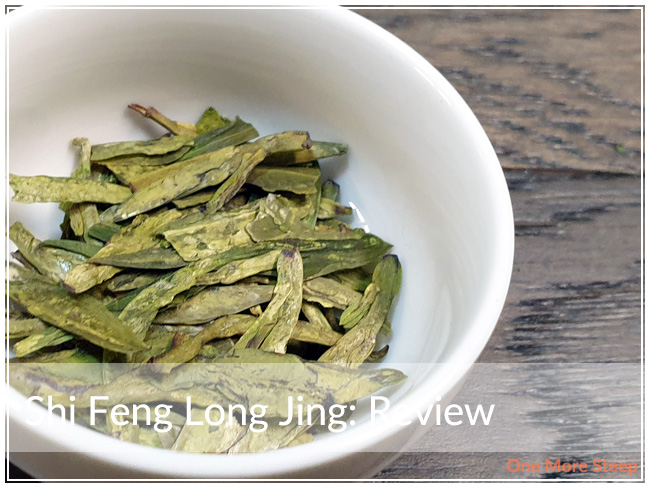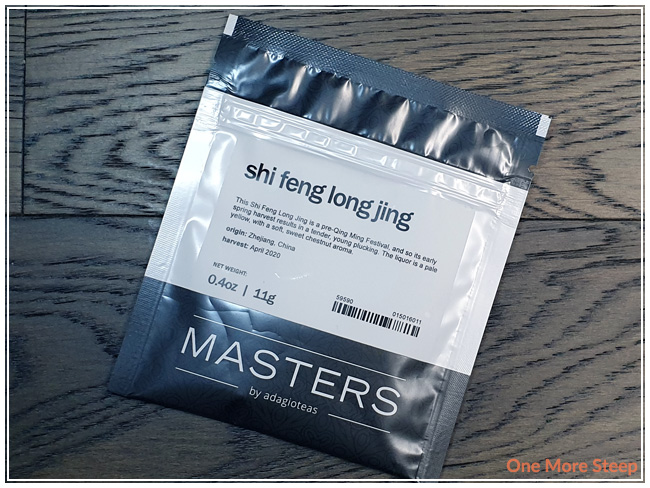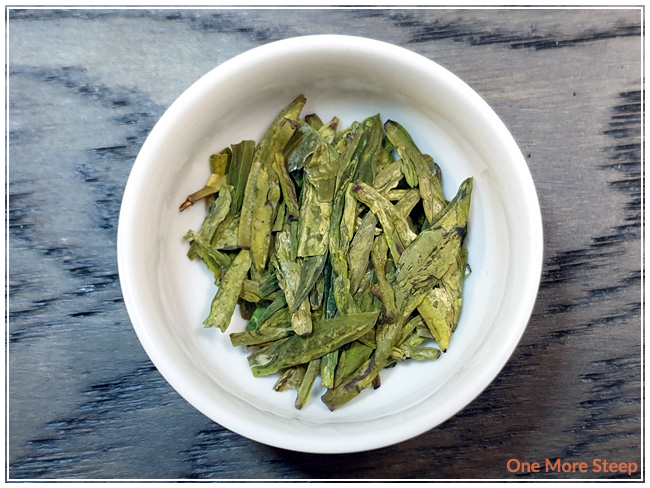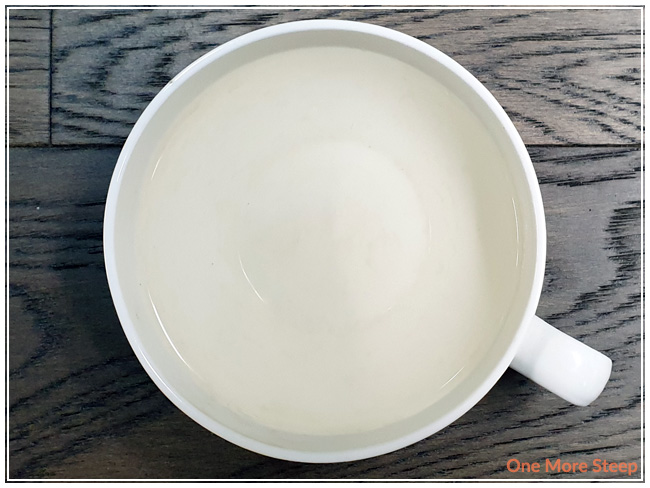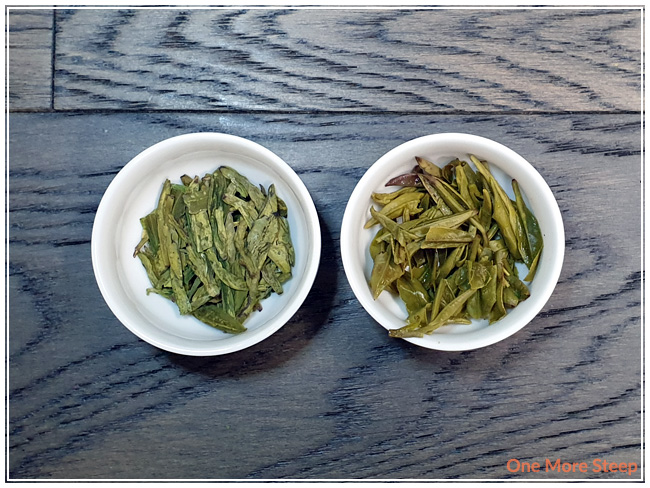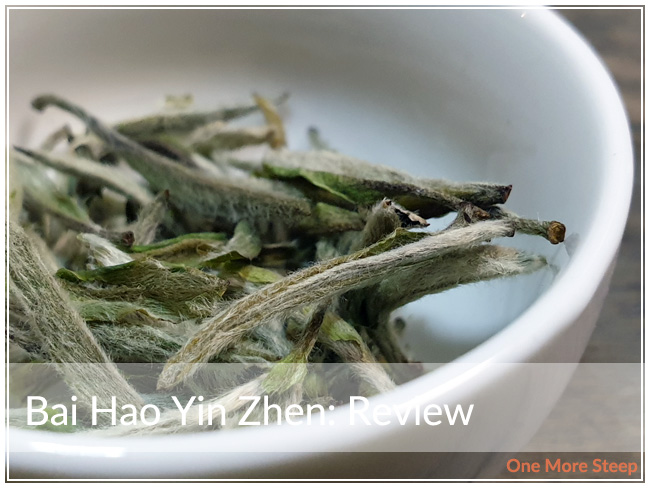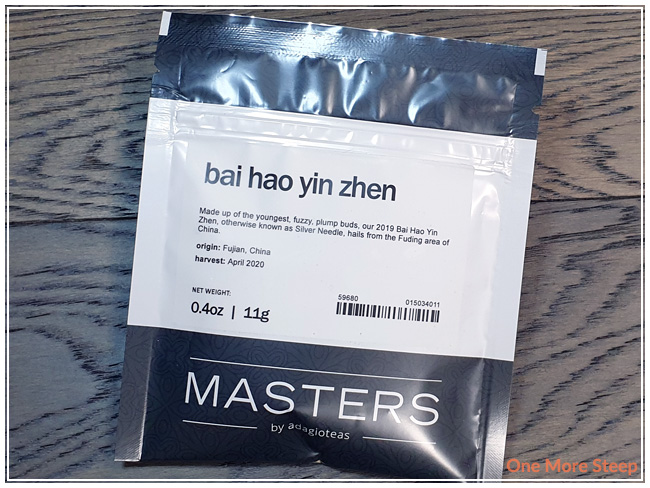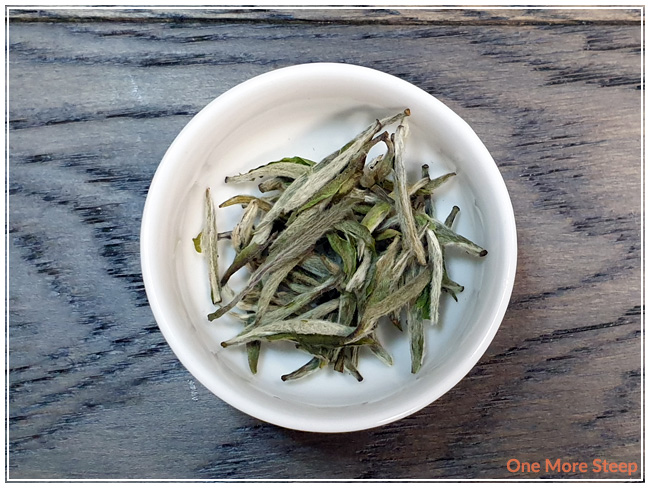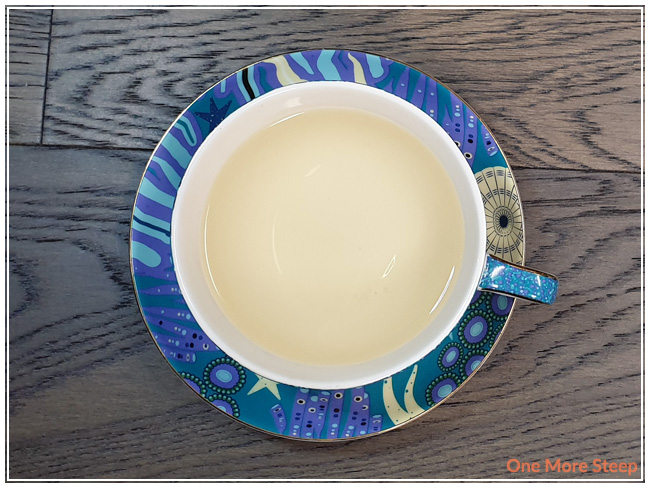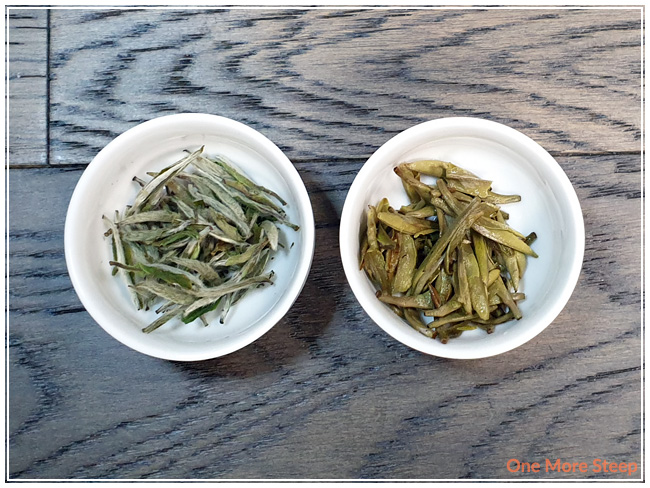Rohini First Oolong by Masters Teas
Oolong Tea / Straight
$19.00USD for 2oz
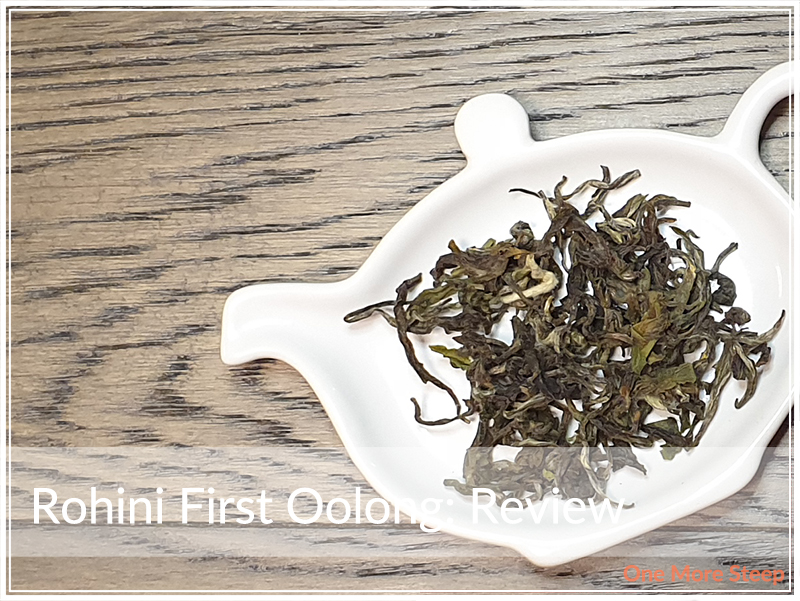
Masters Teas has provided me with Rohini First Oolong for the purposes of writing an honest review.
First Impressions
When you get asked if you want to try out teas that were just harvested a couple of months ago, the answer is always yes. It’s such a treat to get to try out a brand new first flush tea that I will almost always jump on the opportunity to give a try. So when Masters Teas asked me about trying some early harvested 2021 teas, of course I said yes. This is Rohini First Oolong, which is described as being a very early first flush tea and comes from Darjeeling, India and is grown at 2000m above sea level.
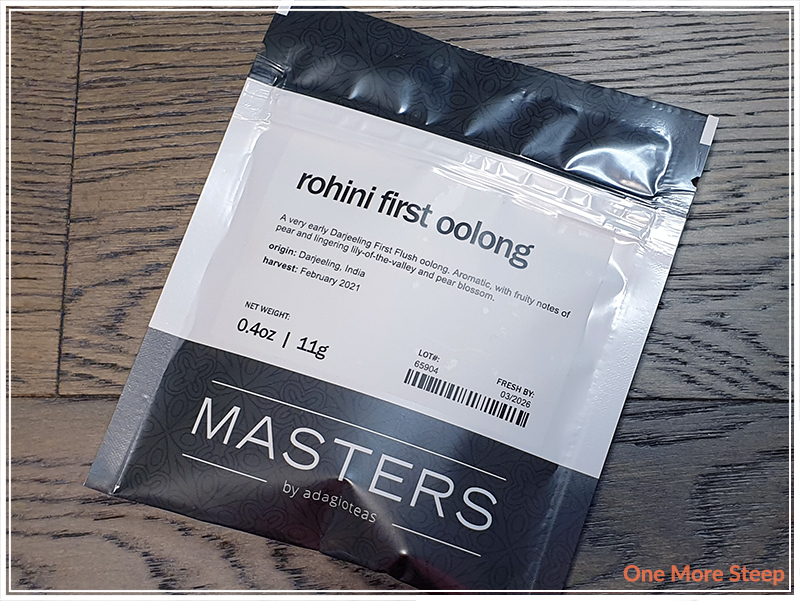
Rohini First Oolong comes in a sealed, resealable pouch with a nice label across the front. No steeping instructions on this sample, but I was able to find that information on the product page off of the Masters Teas website quite easily. The leaves are quite pretty – there’s a wide range of colours from light to dark green, and browns throughout. The leaves are wiry, with light twists throughout. I found the dry leaf to be a bit floral, with more vegetal undertones than I was expecting based on the description of being fruity.
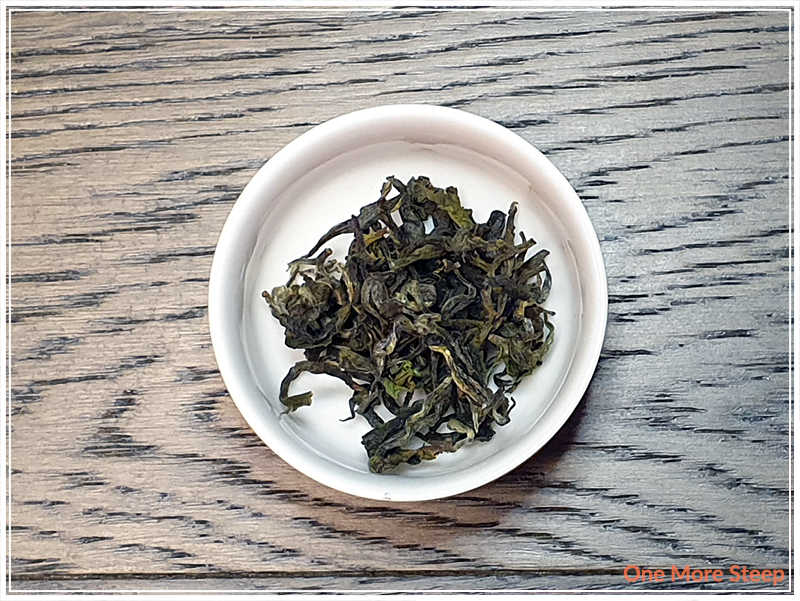
Preparation
Masters Teas recommends steeping Rohini First Oolong in 180°F (82°C) water for 3 minutes. I followed the steeping instructions for my initial steep.
First Taste
Rohini First Oolong steeps to a very pale yellow for the initial steep. The aroma is a light floral perfume, and grassy vegetal aromas in the background. I found the flavour to be very similar to the aroma of the tea. It has a light floral flavour, with a strong vegetal flavour that really does come through strong. There’s the sweet floral finish at the end of each sip and it just lends itself well to being sipped on. It has a full bodied flavour that has a surprisingly amount of flavour for a tea that’s so pale.
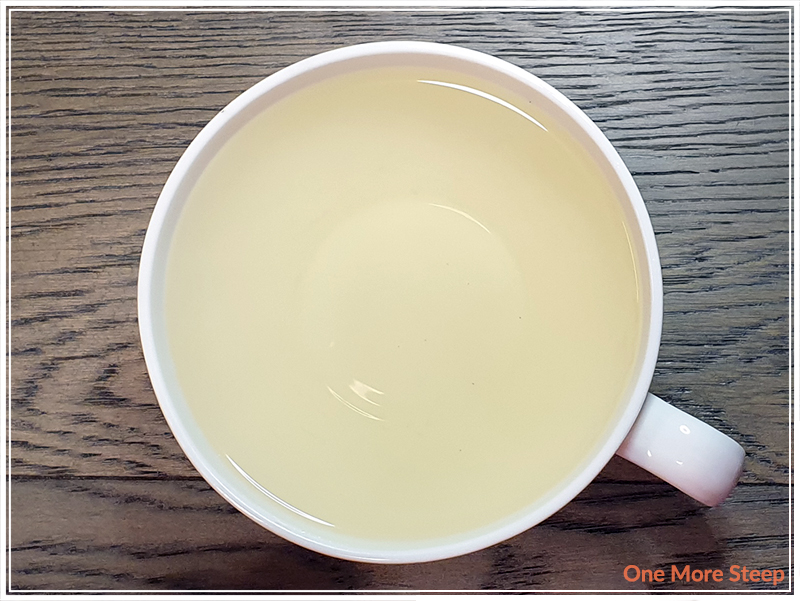
A Second Cup?
I resteeped Rohini First Oolong seven times (eight times total with the same leaves), adding an additional 30 seconds for each subsequent steep. I found that the tea became more golden yellow, much deeper in flavour but also changing at the same time. After the first resteep, the tea got much more floral and sweet with the vegetal notes fading away. There was also an increasing fruity flavour to it that reminded me of the crispness of biting into an apple (specifically gala – which is also one of my favourite apple varietals).
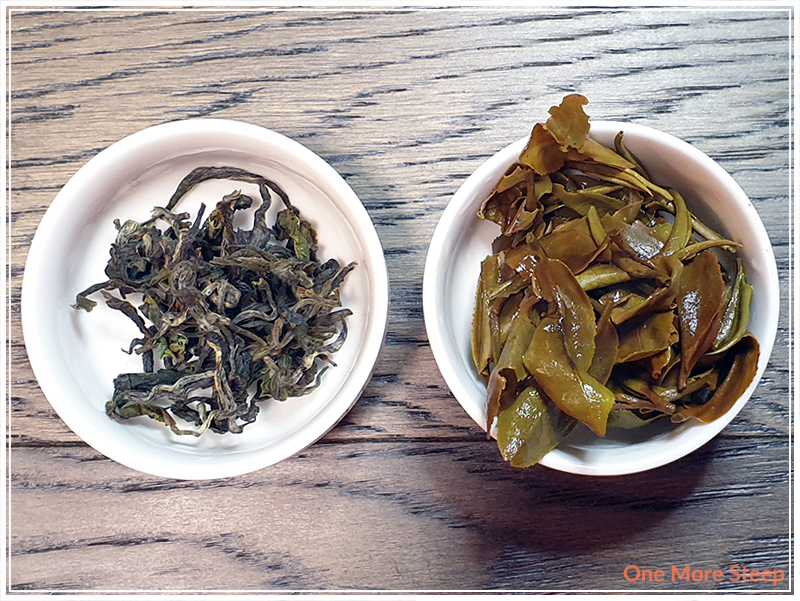
My Overall Impression
![]()
I loved Masters Teas’s Rohini First Oolong. While I didn’t enjoy the initial steep as much as I did the later ones, I found the increasing sweet floral flavours and apple notes to be really inviting and delicious. The vegetal flavours captured my attention, but the floral sweetness kept me drinking the tea repeatedly through the steeping session. This oolong is definitely one to dedicate time to so you can enjoy all the nuances in the flavour profile changes with each steep.
Curious about the cup rating system? Click here to learn more.
